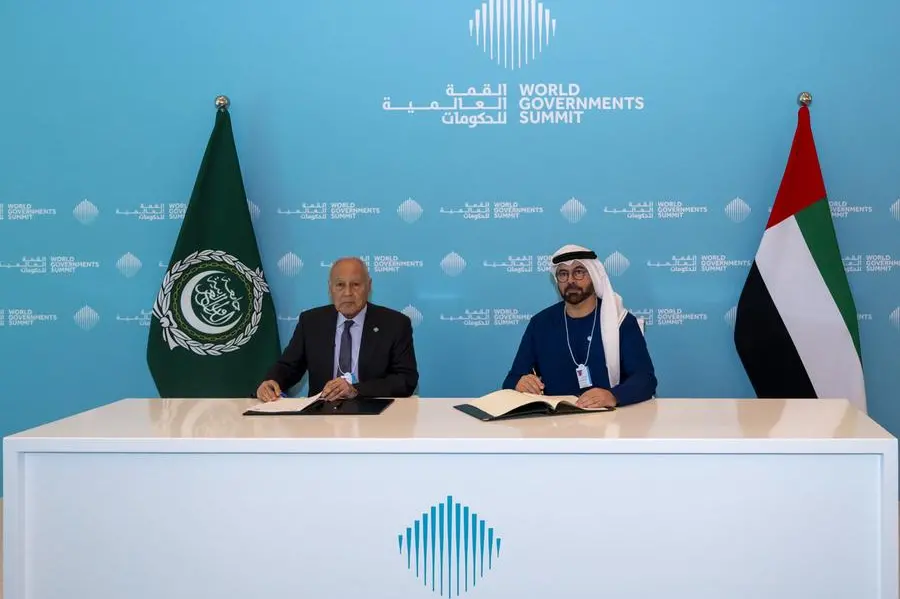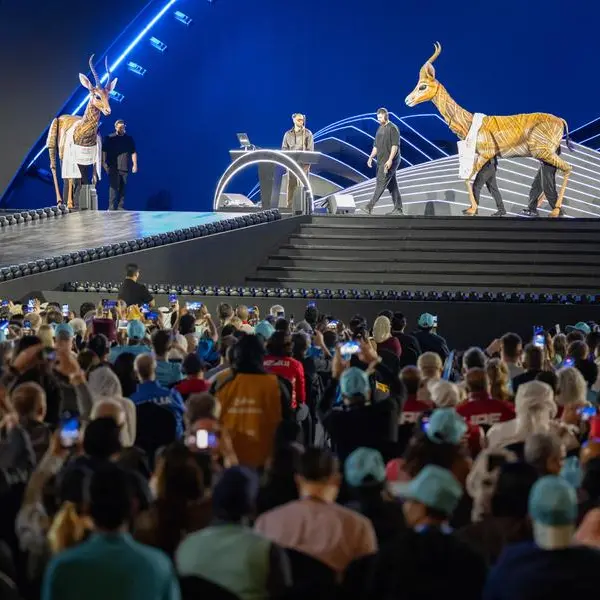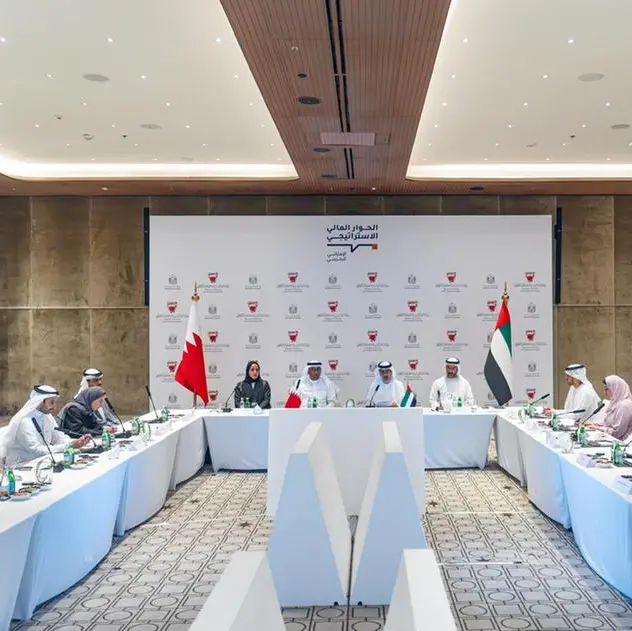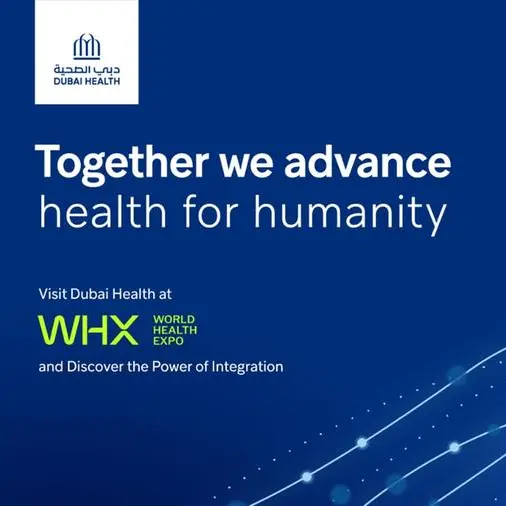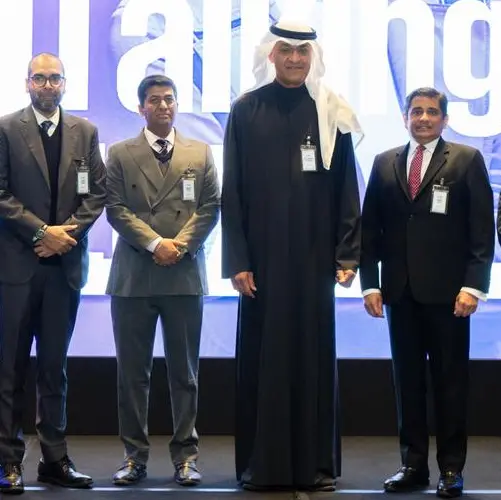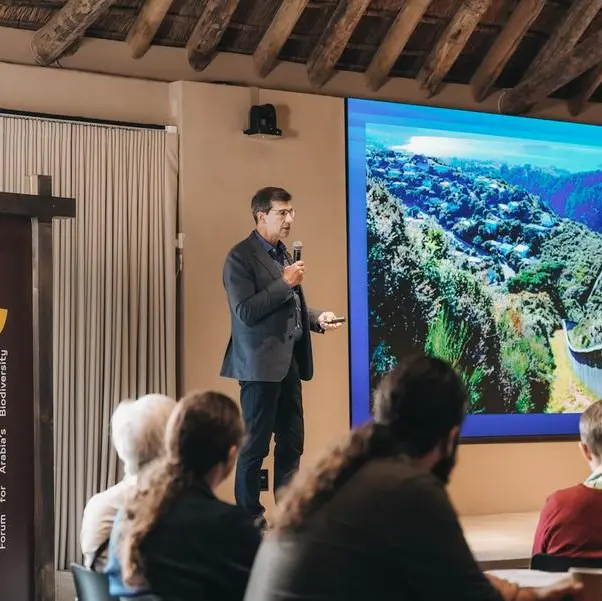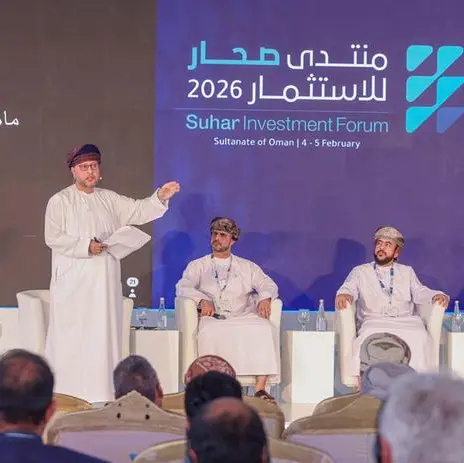PHOTO
- Arab Government Excellence Award continues to advocate enhanced public sector performance in the Arab World
- Ahmed Aboul Gheit: The award encourages governments to think boldly, embrace competitiveness, and strive for excellence.
- Mohammad Al Gergawi: This award represents our joint efforts to drive distinguished initiatives, projects and practices in the public sector
UAE: Under the patronage of His Highness Sheikh Mohammed bin Rashid Al Maktoum, Vice President and Prime Minister of the UAE and Ruler of Dubai, the UAE Government has extended the Arab Government Excellence Award, in a strategic partnership with the Arab League, for an additional four years.
The award aims to advocate and promote enhanced performance leadership within the region's public sector.
The agreement was signed by His Excellency Ahmed Aboul Gheit, Secretary-General of the League of Arab States, and His Excellency His Excellency Mohammad Al Gergawi, UAE Minister of Cabinet Affairs and Chairman of the World Governments Summit (WGS), on the final day of the event.
Ahmed Aboul Gheit emphasized the significance of the award as both a source of motivation and a catalyst for enhancing Arab government efficiency. He highlighted its role in encouraging innovative work approaches to achieve the highest levels of productivity and effectiveness. Aboul Gheit also noted that the award encourages governments to think boldly, embrace competitiveness, and strive for excellence.
Al Gergawi said the Arab Government Excellence Award aligns with the directives of Sheikh Mohammed bin Rashid Al Maktoum to motivate Arab governments and public sector leaders to intensify efforts towards innovation and to develop best practices that institutionalize excellence and quality performance.
A shared vision for excellence
The Arab Government Excellence Award reflects the shared vision of the UAE and the Arab League on the importance of advancing Arab governments’ performance and services on an institutional basis, noted Al Gergawi.
“This award represents our joint efforts to encourage distinguished initiatives, projects and practices in the public sector, while celebrating entities and individuals who have transformed community services and quality of life into a systematic and sustainable approach and a model for development across the Arab world,” said Al Gergawi.
Launched in May 2019 under the patronage of Sheikh Mohammed bin Rashid Al Maktoum, the award aims to encourage government institutions in the Arab world to adopt global best practices to boost the quality of life. It seeks to boost institutional performance, enhance public service delivery, and promote positive competition, while facilitating the exchange of expertise and success stories.
The award recognizes outstanding government institutions and employees that achieve exceptional and sustainable results in public sector performance and play a role in advancing excellence across the Arab world.
It aims to promote a culture of innovation and creativity in government to drive a transformational shift in performance and service quality. It also seeks to recognize government institutions that leverage smart technologies to drive innovation and deliver world-class services for citizens, reducing their time and effort, while boosting their quality of life.
Over the past few years, the Arab Government Excellence Award has honored 66 winners across its three editions, recognizing ministries, government entities, and public sector professionals across the Arab region.
The award also featured special recognition for outstanding initiatives that have transformed excellence into a driving force for government progress and achievement.
WGS 2025
Held under the theme ‘Shaping Future Governments’, this year’s WGS convened over 30 heads of state and government, more than 80 international and regional organizations and 140 government delegations. Its agenda featured 21 global forums exploring major future trends and transformations, over 200 interactive sessions with more than 300 prominent speakers—including presidents, ministers, experts, thought leaders, and decision-makers—and over 30 ministerial meetings and roundtables attended by more than 400 ministers. The summit, which ran until Feb. 13, also published 30 strategic reports in partnership with its international knowledge partners.
